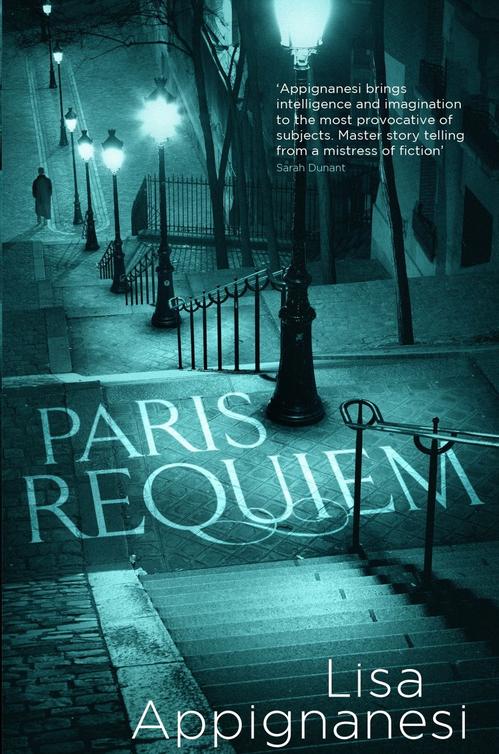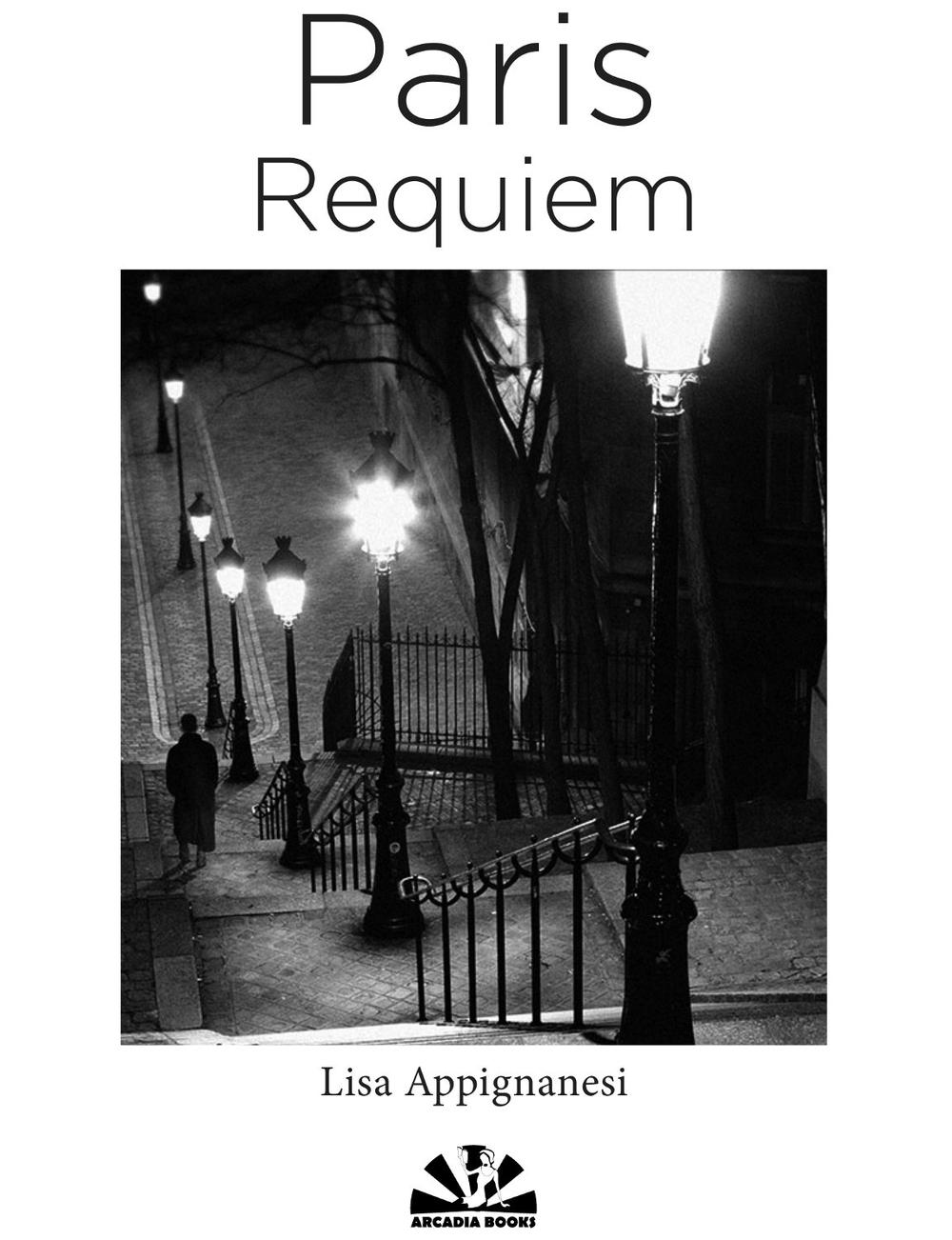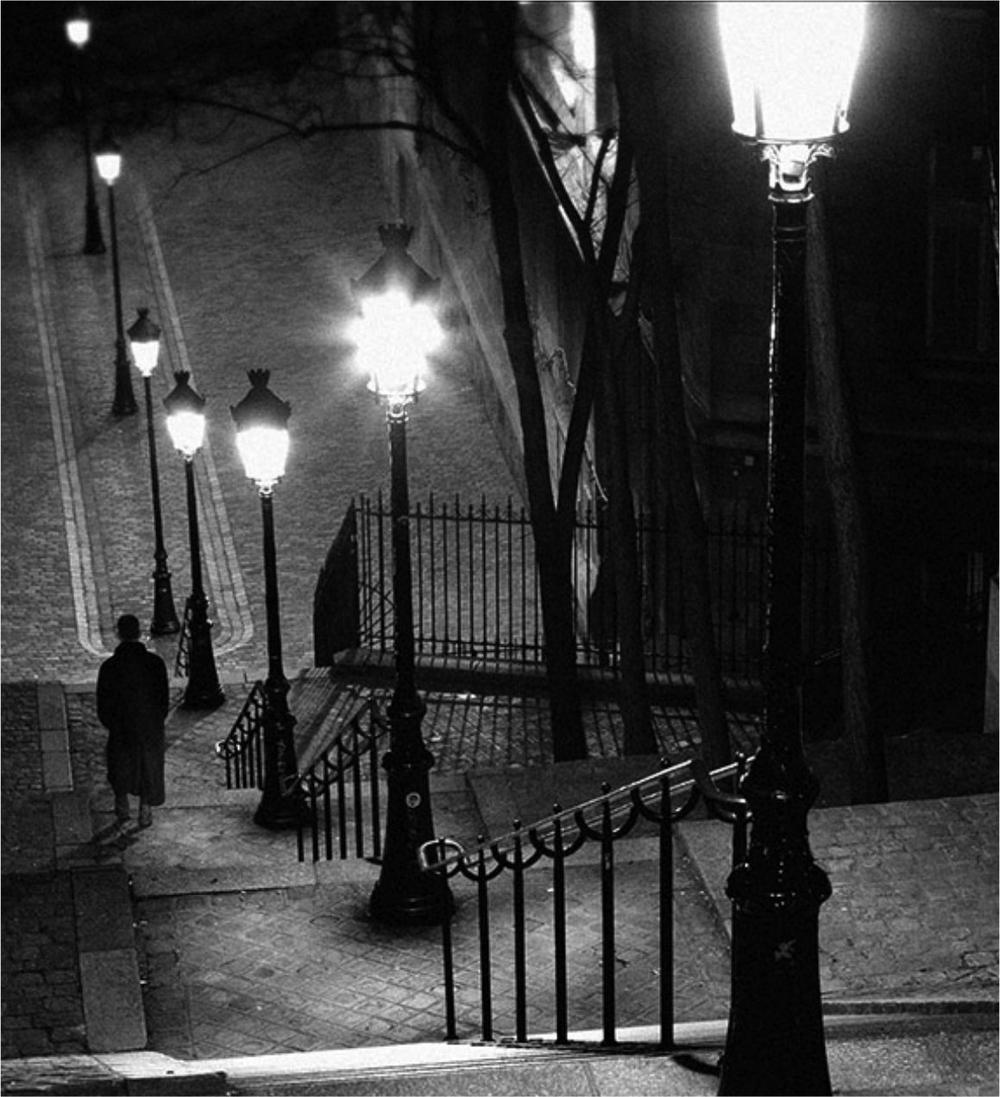Paris Requiem
Authors: Lisa Appignanesi



- Title Page
- Epigraph
- PART ONE
- ONE
- TWO
- THREE
- FOUR
- FIVE
- SIX
- SEVEN
- EIGHT
- NINE
- PART TWO
- TEN
- ELEVEN
- TWELVE
- THIRTEEN
- FOURTEEN
- FIFTEEN
- SIXTEEN
- SEVENTEEN
- EIGHTEEN
- NINETEEN
- TWENTY
- PART THREE
- TWENTY-ONE
- TWENTY-TWO
- TWENTY-THREE
- TWENTY-FOUR
- TWENTY-FIVE
- TWENTY-SIX
- TWENTY-SEVEN
- TWENTY-EIGHT
- TWENTY-NINE
- NOTES AND ACKNOWLEDGMENTS
- About the Author
- By the Same Author
- Copyright
Live all you can; it’s a mistake not to. It doesn’t so much matter what you do in particular, so long as you have your life. If you haven’t had that what
have
you had?
Henry James, The Ambassadors
3e série Paris, le 30 mai, 1899
From our Crime Correspondent:
In the early hours of the morning of 29 May, police pulled an unidentified woman’s body from the Canal St Martin. About twenty years old, dark-haired and wrapped in a dress which might once have been blue, the woman bore the marks of severe beating, which police ascribe to the collision of her body with the numerous barges which crowd the canal. While the police carry out their
investigations
, it is unclear whether the woman jumped to her death or was already dead when her body was thrown to the waters.
This marks the sixth suspicious death in half the months of a hapless young woman in our capital. The Seine, the shafts of the still unfinished
Métropolitain
, the shrubs bordering the river at Auteuil near the Auberge Boileau, all have provided last stops for these ill-fated women, two of them barely old enough to leave their mothers’ care.
Police are quick to attribute these deaths to suicide. Why not? After all, two of the women were listed
prostitutes
whose degenerate lives, according to our guardians of morality, deserve no better end. Two others were
homeless
vagabonds. But what if prositution and vagabondage are the symptoms of their plight and not its cause?
As Republicans, we need to address the larger question:
what is it in the tumultuous hub of modernity which is Paris that drives young women to confront their maker in such violent ways?
There is also a secondary matter which the police must confront. Were the lives of these women really worth so little that they could fling them away? Or are there foul forces at play here – as foul and murderous as those which condemned Captain Dreyfus – that have conspired violently to cut short these women’s days?
P
aris sizzled with the spectres of past and future danger. The Gare Saint-Lazare was a hellhole. The air burned. Engines hissed. Smoke billowed. Whistles shrieked. Trains clanged and clattered like weary mechanical beasts. Everywhere was heat and noise and the crush of humanity.
James Alexander Norton hesitated at the open door of his compartment. The truth was that he hadn’t wanted to come. He hadn’t wanted to see these women with their scarlet slashes of mouths patting handkerchiefs to brows and
plunging
bodices. He hadn’t wanted to hear these perspiring men shouting orders, nor the cabin trunks clanking to the porters’ wild gesticulations, nor the children screaming, their cries amplified by the slaps of solemn-gowned governesses.
He had barely wanted to leave the quiet of his study at the Harvard Law School and make the trek across the Charles River into Boston, let alone travel from his native city to New York. Still less had he wanted to board a liner and spend mindless days staring out at an eternity of waves.
He had reached the age, he told himself, where habits were preferable to change, and travel a trying diversion. He also
had – though the very concept irked him since he was an imminently rational man – what he was forced to call a
premonition
: a lurking sense that no good could ever come from his return to this city.
He hid his reluctance with skill. As he leapt off the boat train onto the platform and mingled with the throng, the impression he gave was hardly that of a man who felt his future was all behind him. His jaw wore a determined
forward
thrust. There was an alacrity to his step. His cheeks were ruddy from the sea wind, his deep-set eyes an icy blue. In his well-brushed linen suit, his sparkling white shirt and
carefully
knotted tie, he looked like what he also was: a man in his prime. A thirty-five-year-old American with a mission. A stubborn, secret man, who had learned to keep his
emotions
in check.
He scanned the platform and waited for the anticipated face to emerge from the crowd, if a little late. When it didn’t he pulled out his pocket watch in an impatient gesture.
The sound of his name, audible beneath a foreign
inflection
, made him turn. He saw the conductor pointing in his direction. A slight, cloth-capped youth wove his way through the fray and stopped in front of him. Large, dark-lashed eyes examined him from a grimy face.
‘Monsieur Norton?’
James nodded. A stream of words poured from the boy’s lips. Amidst the noise, he couldn’t quite follow them. But the envelope which found its way into his hands was decipherable enough despite the smudge of a fingerprint across his name.
He tore it open and made out his brother’s hasty scrawl.
‘Forgive. Forgive. Something urgent has come up. Rooms reserved for you at the Grand. And a friend’s carriage is at your disposal. Antoine will guide you to it. Until tomorrow, I hope. R.W.N.’
When James looked up, the youth he decided must be
Antoine was already negotiating a porter to his trunk and urging James along the platform.
James shrugged off his irritation. Typical of his wayward little brother to have business more pressing than that of coming to meet him – though it was for him he was here. He should have predicted it.
Rafael William Norton, known to his near ones as Raf, hadn’t bothered to respond to the telegram announcing James’s arrival. Nor, indeed, had he written more than the most cursory of letters home for some months. If they wanted to read Raf, they now had to turn to those pages of the
New
York
Times
which charted the clamorous progress of French politics and the murky in’s and out’s of the everlasting
Dreyfus
Affair. That was what had seduced a holidaying Raf to stay in Paris in the first place and what had brought him back, this time with their sister, Ellie, some ten months ago.
A prod at his back forced James to adjust his face. He turned with a hovering smile to see the bustling, matronly girth of one of his dinner companions from
La Bretagne
.
‘Hotel Mercure. Don’t forget, Mr Norton. Charlotte and I count on you.’
James nodded, bowed, extricated himself from the
lingering
sidelong glance the young Miss Elliott cast on him, and let the two women pass, the daughter as tall and angular as the mother was short and stout. He waited until they had
disappeared
into the teeming main hall of the station and then battled through the crowd, amplified now by a motley assortment of ragged vendors and cheeky flower girls, all shouting their wares. He caught up with Antoine at the street doors.
A whiff of sewage mingled with the cloying odour of fresh dung rose to his nostrils. A hundred hoofs clacked over
cobbles
. Cabs squealed and rattled. Whips cracked. The air itself crackled with electricity, jolting everyone into jangling speed. Feeling his own heart beat faster, James paused for a moment
to take in this first taste of the city. Paris, as this nineteenth century hurtled towards its end, was distinctly nervous.
On the opposite side of the street, a tight rank of blue-clad policemen in stiff, rounded caps held back a braying mob of demonstrators. Mustachioed ruffians in thick shapeless jackets shook their fists and shouted in orchestrated menace. Soberly garbed citizens, straw boaters slightly askew, lifted threatening canes into the air. Flags and banners billowed above massed heads. Bullhorns blared a torrent of words he couldn’t quite make out. But he could read the banners.
‘Death to the traitor Dreyfus, the German’s lackey.’ ‘NO to the re-trial.’ ‘Long live the French Army.’
James had a sudden sharp sense of danger. It rose from this thronging mass of disorderly humanity like the high reek of uncontrollable hatred.
Antoine tugged at his sleeve and pointed him towards a street to the right. The lad wanted to get away before the
inevitable
brawl erupted. James hurried after him and clambered into the designated carriage.
As the horses executed a sharp turn away from the tumult of the station, he leaned into surprisingly comfortable leather cushions and relaxed to the half-remembered sights of the city. Impressions poured over him. The bustle of a marketplace. Vast tubs of vivid flowers beneath the pale bulk of the Madeleine. The Baron Haussmann’s majestic boulevards, perfectly tuned to the march of armies. The dark, reckless passion in the face of a man dashing across a street. The weight of history clinging to the stone buildings like the pervasive soot and bare-bosomed statuary. Yes, he had come back to Paris after all these years. Despite himself, his senses sharpened into a forgotten
wakefulness
which bore all the trappings of excitement.
Gilded empire elegance reigned in the lobby of the Grand Hotel. Like some stage set resurrected from former times, it
demanded appropriate mannerisms, muting voices, eliciting a decorum which shunned the frenzy of the streets.
James cleared his throat and announced himself. The
manikin
of a clerk behind the gleaming counter looked up from his registers with a theatrical beam of a smile.
‘Ah Monsieur Norton, the older. Yes, your brother told us.
Un grand avocat
. Lawyer. De Boston.’
James nodded and wished that Raf wasn’t so garrulous. But the clerk was both pleasant and efficient and within minutes, James had been given his room number and key and shown not only the restaurant where diners already gathered, but the telephone cabin from which he put a call through to his siblings’ number. He waited and waited, to no avail. Neither his brother, nor, more suprisingly, his sister, it seemed, was eager for his arrival. It would make his mission all the more difficult.
He rode up to the fourth floor in the mirrored elevator. His old love of architecture, a profession he had once wished to pursue, drew him to the windows of his room before
anything
else. He allowed himself to feed on the spectacle of the well-proportioned square dominated by the imposing façade of Garnier’s recent neo-baroque Opera. His eyes played over the stately harmony of the whole, then rose slowly across detail and towards the winged victories which perched atop the edifice. In this light, their stony faces brought his mother to mind. He looked away abruptly.
It was his mother’s increasing distress that had propelled him on his mission to Paris. Absent Raf was her favourite. His visit home the preceding summer had rejuvenated her. Under his appraising eye, she had shed her stern greys and blacks and on occasion come down to dinner in pale frocks James didn’t believe he had seen since before his father’s death over six years ago. And she had assumed that Raf was home for good. Even when the new publisher of the
Times
had asked
his brother to cover the Paris peace conference which marked the end of the United States’s protracted war with Spain, it hadn’t crossed her mind that her youngest might choose to linger in the distant city. She had sent Ellie along, not only as a treat and distraction for her long-suffering daughter, but as an extra assurance that the two would be back before Christmas.
But the end of the peace conference did not mark the end of the siblings’ stay in the capital of temptation. Instead, delaying letters arrived. Ellie stated that it seemed best to
prolong
their time since she felt ever so much better here and Raf really shouldn’t be pulled away from such a stimulating terrain for his writing. Raf’s letters, on the other hand,
intimated
that Ellie was in no condition for winter seas, though her mood was good, and that it would be wise to extend their stay in what were fine quarters.
The extension seemed to have no boundary. Their mother’s disappointment had turned to ire and then, as letters became infrequent, unassuageable anxiety. She was convinced things were being kept from her. There were hidden reasons for her children’s interminable absence which had little to do either with Ellie’s health or Raf’s work. She had begun to disapprove of the tenor of that, too.
She could think of nothing but the absent pair. Her usual round of charitable endeavours fell away. So too did meetings with friends, except those who might have heard some gossip from Paris. For the rest, she fretted and worried, pacing the length and breadth of her front room, covering miles,
pausing
only to gaze out the windows with the gaunt face of a Hecuba whose offspring had been lost to fate.
Some four weeks ago, she had grasped at James’s hand like some life raft, clawed at it. ‘I know now. Ellie’s finally
confessed
. He’s entangled. Entangled with …’ she had turned her face away and hissed out the words, ‘with a scarlet woman.
Even her name reeks of it. Olympe. You have to save him, James. Only you can do it. Bring him back. Bring them both back. He’s hideously enmeshed. I can’t speak all of it. Can’t. The shame.’
She had wrung her hands. Her contorted expression moved from disgust to abject fear. In her spiralling imagination of disaster, her grown son had been transformed into a hapless babe snatched from her by a Paris of harlots and perfidy. If he were to be returned alive, it could only be by the intervention of some saintly knight.
James’s stiff protests that Raf was an adult had no effect. His mother was impervious to reason. She was already engaged again on her trajectory round the room, her eyes fixed on some middle distance fraught with torment. From the midst of it, she hailed him once more. ‘You will have to go, James. There’s no choice. It’s up to you. You’re his only chance.’
The words came with the force of an injunction. Like some empress marking the end of an interview, she had then
lowered
herself slowly into a chair and given him her back.
James took a certain pleasure in duty. He had always
combined
an older brother’s burden of responsibility with an
ability
to bear the freight. His early love of architecture had been abandoned to follow his father obediently into the law and he had done well-enough by it. Wooed some years ago by James Barr Ames to Harvard and to the law school’s experimental teaching by the intriguing case method, he had gradually left behind the cut and thrust of active practice. He took real
satisfaction
in his new work. Yet he had propelled himself away at his mother’s behest as soon as term permitted, so that he now found himself staring out on the Place de l’Opera
wondering
why it was that his rebellious younger brother could stir such passions in their mother, while he, who stood by her, generally went unnoticed. He wondered, too, why it was that even though he had not yet laid eyes on Raf, his presence, like
some age-old irritant, was already igniting the buried embers of ancient rivalries.
He didn’t allow himself to wonder for long. The clerk had handed him letters which demanded attention. He settled at the carved walnut desk and noticed that the top envelope wore his sister’s neat hand. The script on the second was unknown to him. Intrigued, he opened it first, aware as he did so of the subtle whiff of a foreign scent.
My dear Professor Norton,
Forgive me the liberty of addressing you so soon upon your arrival in our city. Your brother and sister have made me think it would not altogether displease you and have, indeed, asked me to help look after you. I trust your journey has not proved overly fatiguing. If you feel so inclined, I would be honoured if you could join me for tea at …
James skipped details and leapt to the signature. Marguerite de Landois. He played the name over in his mind as he reread the slightly stilted English of the note. No, the name meant nothing to him. Neither Raf nor Ellie had mentioned it as far as he could remember.
Hoping for an explanation, he turned to the second envelope.
‘Welcome to Paris, brother dear.’ Elinor’s playful voice addressed him as directly as if she were standing in the room.
